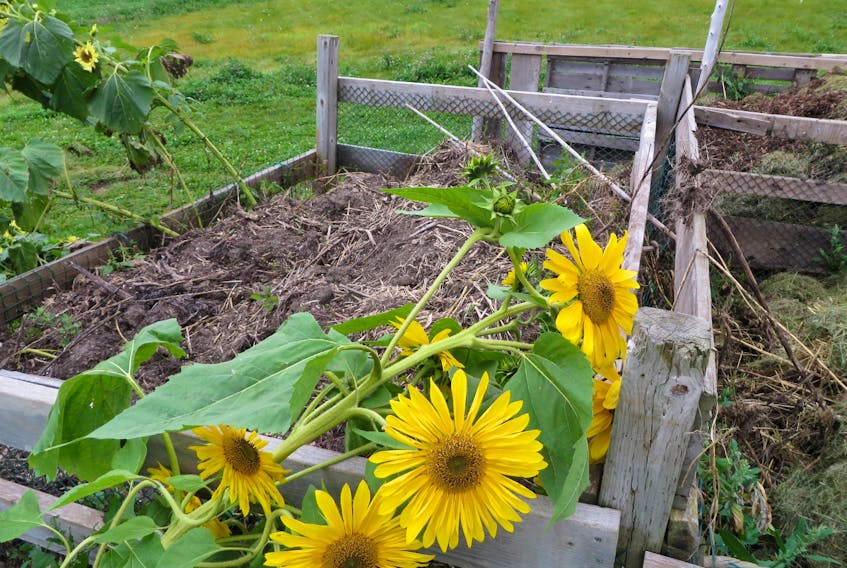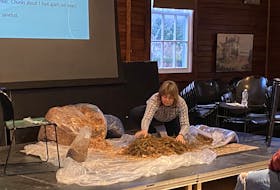CHARLOTTETOWN, P.E.I. — Winter is Mother Nature’s gift to Canadian gardeners.
It is not her only gift as our list includes warm rain, sunshine and all the ancillary gifts that nature showers on us throughout the year. However, there is nothing like a long, cold Canadian winter to set us up for success each season.
Here is how Mother Nature blesses us this time of year and how you can take full advantage:
Compost
Mark has a three-minute walk to his six-cubic-yard compost bin each day. This is what it is to live in the country. He looks forward to it. While there, he looks for animal activity, and sometimes he is surprised to find that a coyote has rummaged through the produce section. Providing them with a little sustenance is the least he can do this time of year. Winter provides a deep freeze that penetrates most of our compost, expanding the moisture-rich contents as temperatures drop.
As the thaw occurs come spring, the tissue of the same kitchen and yard scraps is ripped and torn apart as the cells of the organic material flops into a helpless heap of goo. Otherwise known as pre-mature compost, it still needs a few months to rot down before it is useful as a soil amendment, but the frost accelerates the process. Our southern neighbours, who do not experience frost, do not get this benefit of winter.
Bugs
There is nothing like a long cold spell to kill off many of the problem bugs that attack our garden plants. Japanese beetles have descended on Canadian gardens in recent years, moving up from the American south due to climate change. Warmer winters created an environment that encouraged them to overwinter without a problem so that in summer they can defoliate your Virginia creeper. Hope for mean winter temperatures below -9.4 C. The Ontario Ministry of Agriculture, Food and Rural Affairs advises that colder temperatures over an extended period will kill off Japanese beetles. Bring it on. Unlike the Japanese beetle, we can just put on another sweater.
Think
Winter is a time of reflection. Soon enough, the ground will warm with longer days and stronger sunshine. The crocus will wake up and trumpet hello, reminding us that we have a lot of work to do. Before you are busy with spring garden tasks, take time to reflect on the garden that you want this year. If you grow food, remember that many veggie seeds sold-out early last year. It is not too early to look over the online offerings of seeds and get your orders in.
If you want to plant a new landscape or garden, now is the time to explore the possibilities and sketch a design – it does not have to be fancy. This is the best time of year to reach out and acquire the services of a professional.
Explore
Stir your mind with information and inspiration. There are plenty of great podcasts (we have a fresh one HERE every two weeks at, as well as books including new ones from our friends Tara Nolan (Gardening Your Front Yard) and Niki Jabbour (Gardening Under Cover). Click HERE for more options
Garden indoors
Most obvious of all is to grow plants indoors this time of year. Buy a tropical plant, name it, nurture and make it your own. It will produce oxygen and clean the air for you indoors. Bring home some flowers, especially ones that do not last exceptionally long like roses or freesias. Carnations and mums look OK, but they seem never to give up. When a flower dies after five to 10 days it reminds us that life is fragile and worth savouring. And besides, a vase of spent flowers is a reminder to go get some more, to brighten up our season.
Mark Cullen is an expert gardener, author, broadcaster, tree advocate and member of the Order of Canada. His son, Ben, is a fourth-generation urban gardener and graduate of University of Guelph and Dalhousie University in Halifax. Follow them at markcullen.com, @markcullengardening, and on Facebook.









